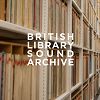Personalised Recommendations
Sign up or log in to MY NTS and get personalised recommendations
Unlock Live Tracklists
Support NTS for timestamps across live channels and the archive
Live on 1

British Library Sound Archive - Political Music from the Arab World (1919-1959)
Though all music is political, some music intended to be that way by those creating it and those listening. The songs in this programme are from the commercially produced 78 rpm discs we are digitizing as part of the British Library Qatar Foundation Partnership.
Spanning the early 20 th century in the region from Iraq and the Gulf to Tunisia, the pieces you will hear grapple with political questions in very different ways. From praise for leaders and state institutions (Tracks 1-5), to a more general “love-of-country” (Tracks 6-9), to more symbolic articulations such as singing the virtues of a potent national symbol (Track 10), a particularly iconic region (Track 11), specific manifestations of colonial rule (Track 12), or singing about the colonizer as an abusive lover (Track 13).
Musicians also tackled particular political issues with their music; such as anti-Black discrimination (track 14); gender discrimination (track 15, composed by the female singer but credited to a male composer), and the mass migration of workers to the Americas (track 16). Building on the work of Sayyid Darwish (track 2), singers developed a genre they called the monologue to address particular social and political issues using humour. The pioneer of this genre in Beirut was ʻUmar al-Ziʻinnī (track 17). His counterpart in Baghdad was ʻAzīz ʻAlī who takes aim at both the British Empire and the League of Arab States as the sources of all the political problems and struggles across Arab societies from Morocco to Iraq (Track 18). The last song on the programme is a monologue from the mid- 1940s, and is a song of protest against the U.S. use of nuclear weapons against Japan in 1944, and against the proliferation of nuclear weapons globally (Track 19).
Selection and description by Hazem Jamjoum, mix by Michele Banal.
You Might Also Like
Tracklist
- Asmahān (Syria/Egypt)Nashīd Al-Usrah Al-ʻAlawīyah (Baidaphon, Mid-1940s)
- Umm Kulthūm (Egypt)Nashīd Mīlād Fārūq Al-Awwal (Odeon, 1937)
- ʻAwaḍ ʻAbdullahAl-Musallamī (Yemen)
- Sayyid Darwīsh (Egypt)Mostafāki Bizyadāki (Mechian, 1919)
- Egyptian Federation For Scouts And Girl Guides Band (Egypt)Mārsh Iftitāḥ Al-Barlamān (Mechian, 1923)
- Najāḥ Salām And Wadīʻ Al-Ṣāfī (Lebanon)Mutnā Wa-ʻishnā Fī Gharām Blādnā (Voix De L'Orient, 1950s)
- Muḥammad ʻAbd Al-Wahhāb (Egypt)Ḥub Al-Waṭan Farḍ ʻalayya (Baidaphon, 1933)
- Al-Zabīdī, Ṣāliḥ Yūsuf (Yemen)Qasīdat Al-ʼaḥrār (Tahaphone, Late 1940s)
- Muḥammad Ghāzī (Palestine)Nidāʼ Al-Waṭan (Baidaphon, Early 1940s)
- ʻAlī Rīāḥī (Tunisia)Al-Zītūnah (Fiesta, Early 1950s)
- Ismaʻīl ʻAbd Al-Muʻīn (Sudan)Sākin Jibāl Al-Tākā (Mechian, 1930s)
- Ṣāliḥ Yūsuf Al-Zabīdī (Yemen)Qasīdat Al-Shiling (Tahaphone, Early 1950s)
- Mūsā Ḥilmī (Syria)Yā Ẓālim La-Mīn ʼashkīk (Baidaphon, Late 1930s)
- Khamīs Mākaddīt (Bahrain)Mā Bā Shirka Būdī (Ebrahimphone, 1950s)
- Laure Daccāche (Syria/Lebanon)Āmint Billāh (Baidaphon, 1939)
- Baīḍā, Ilīyā (Lebanon)Mālak Yā Ibn Al-Waṭan (Baidaphon, Late 1930s)
- ʻUmar Al-Ziʻinnī (Syria/Lebanon)Tītī Yā Titam (Baidaphon, Late 1940s)
- ʻAzīz Alī (Iraq)Minnah Minnah (Chakmakchiphon, 1950s)
- Abdullāh Al-Mudarris (Lebanon)Al-Bumbah Al-Dharīyah (Baidaphon, Late 1930s)


